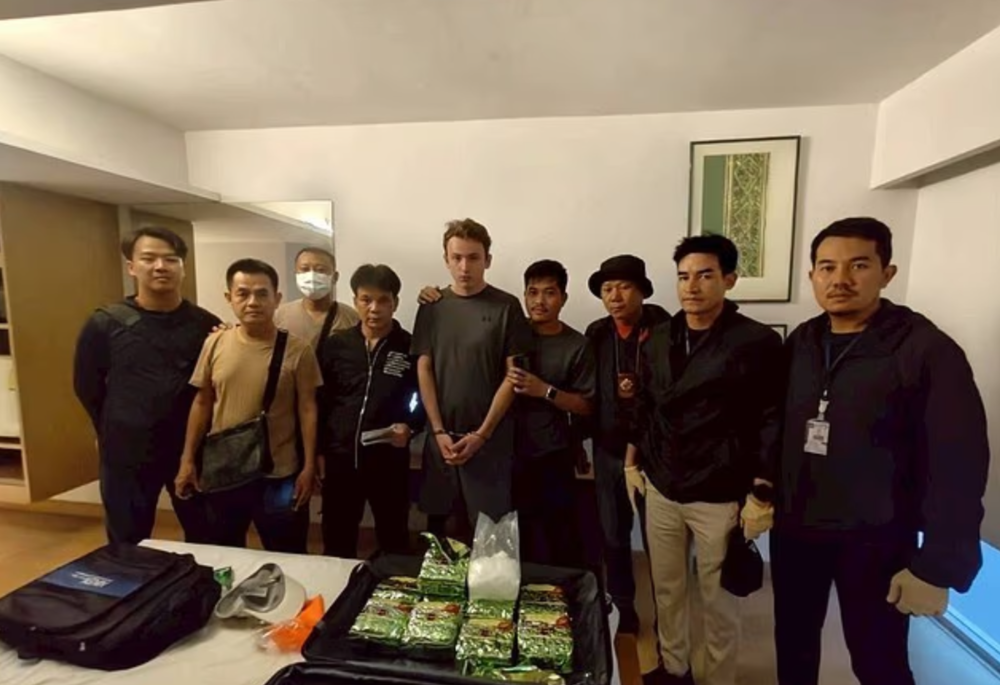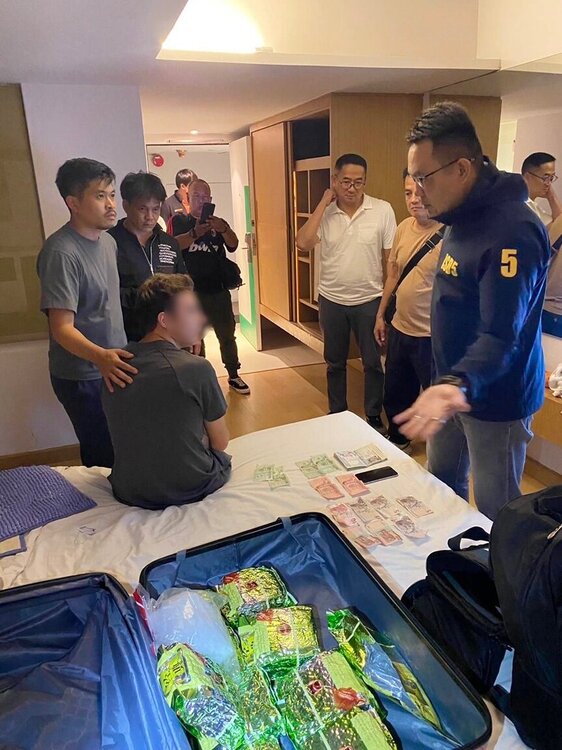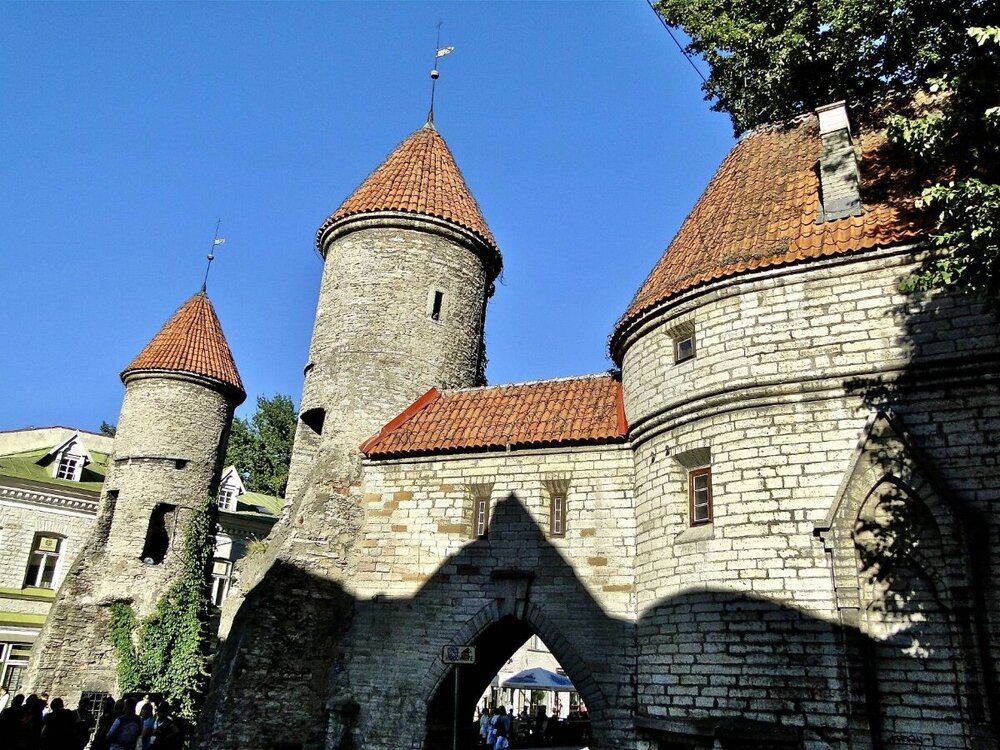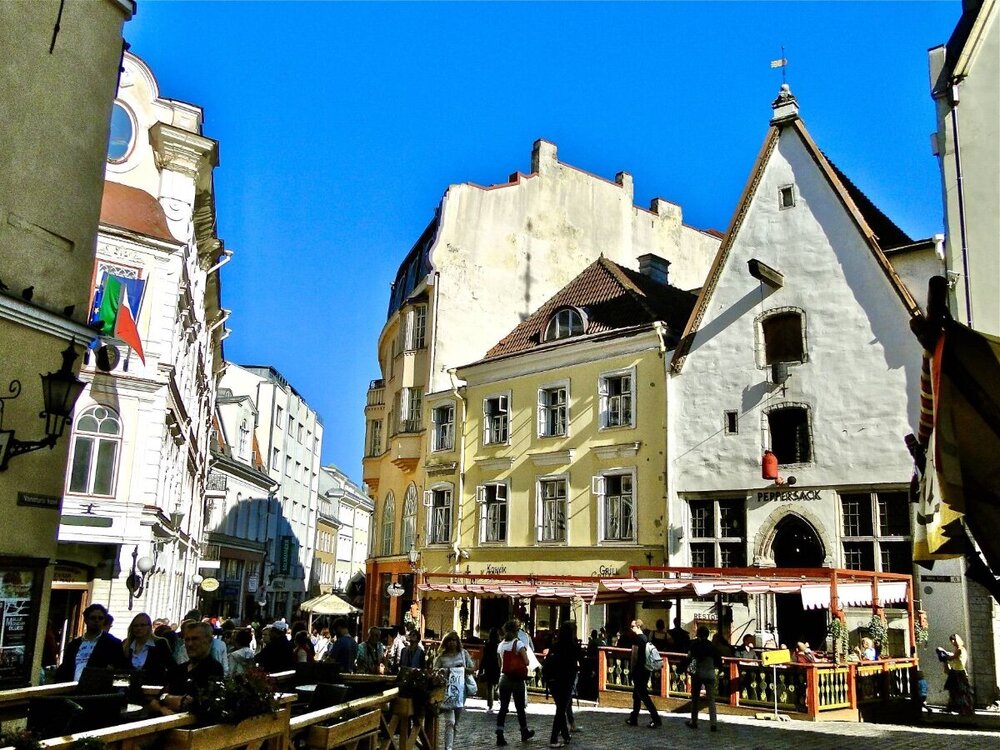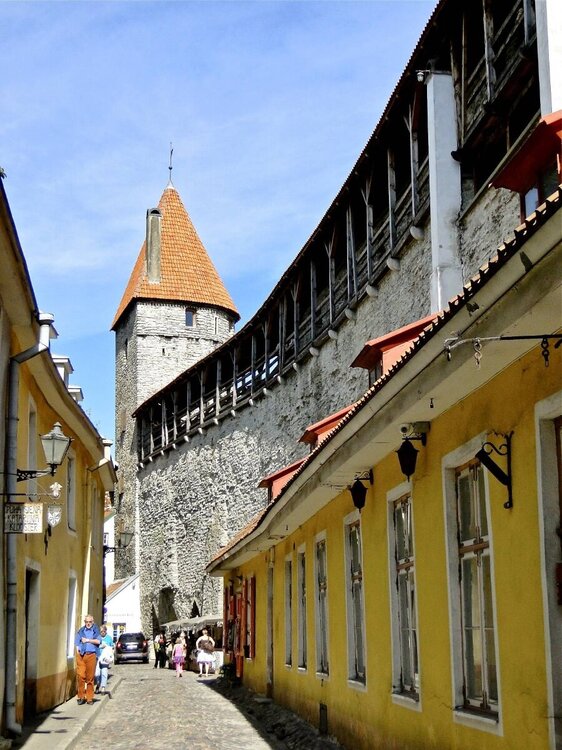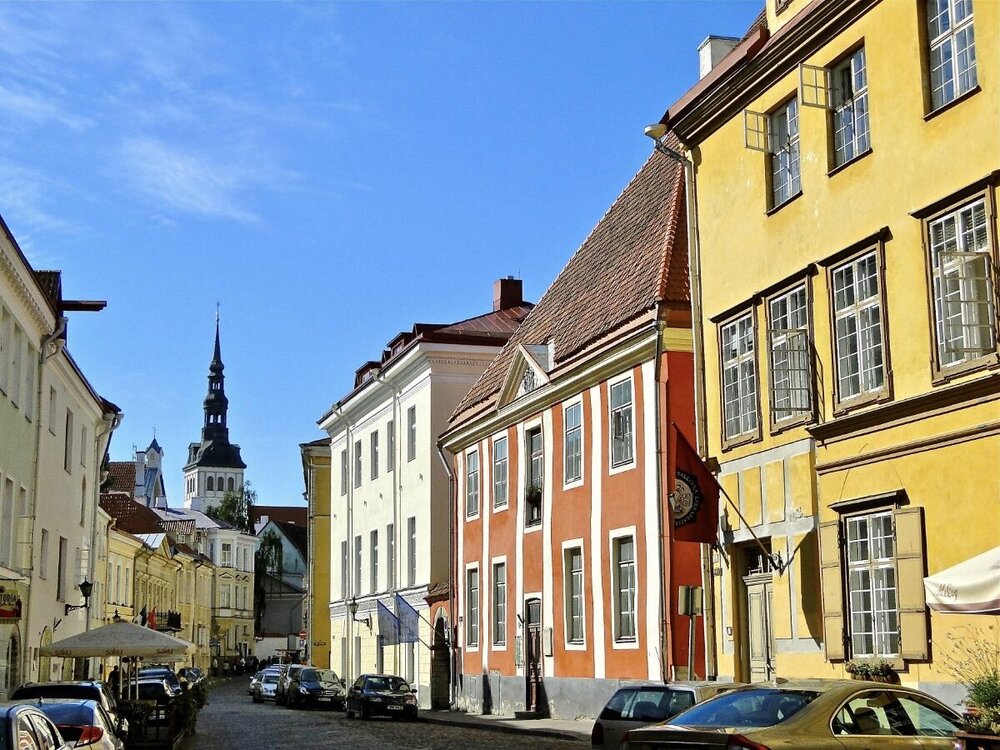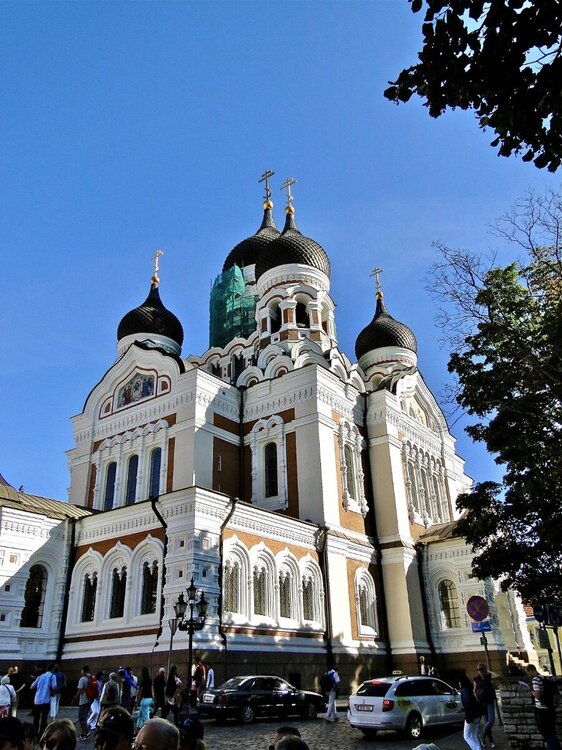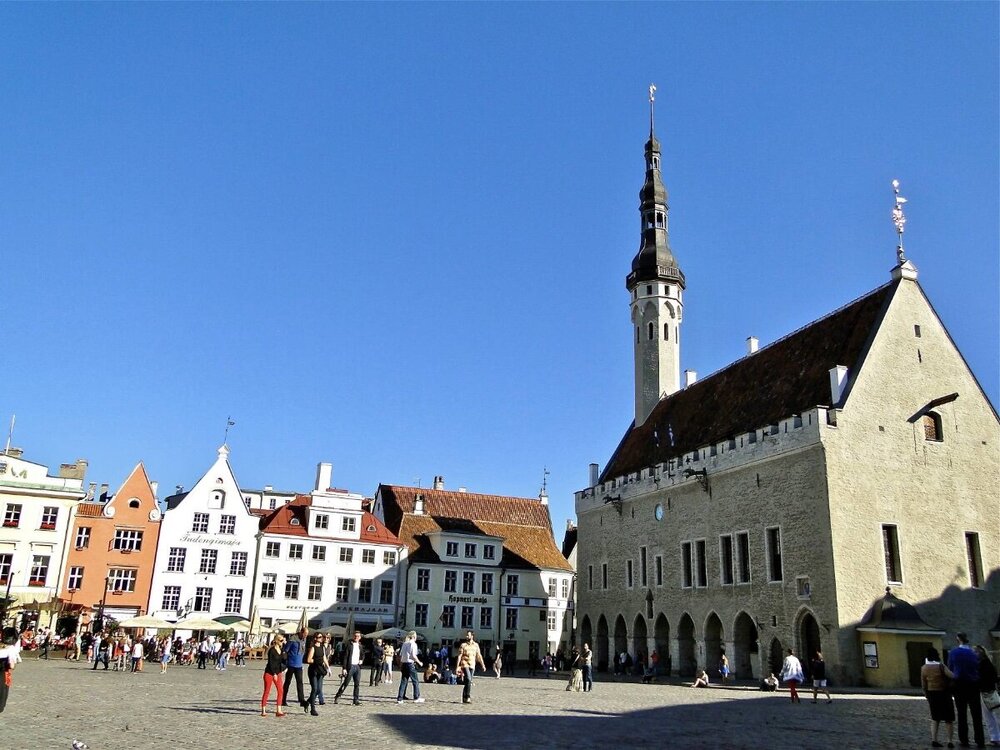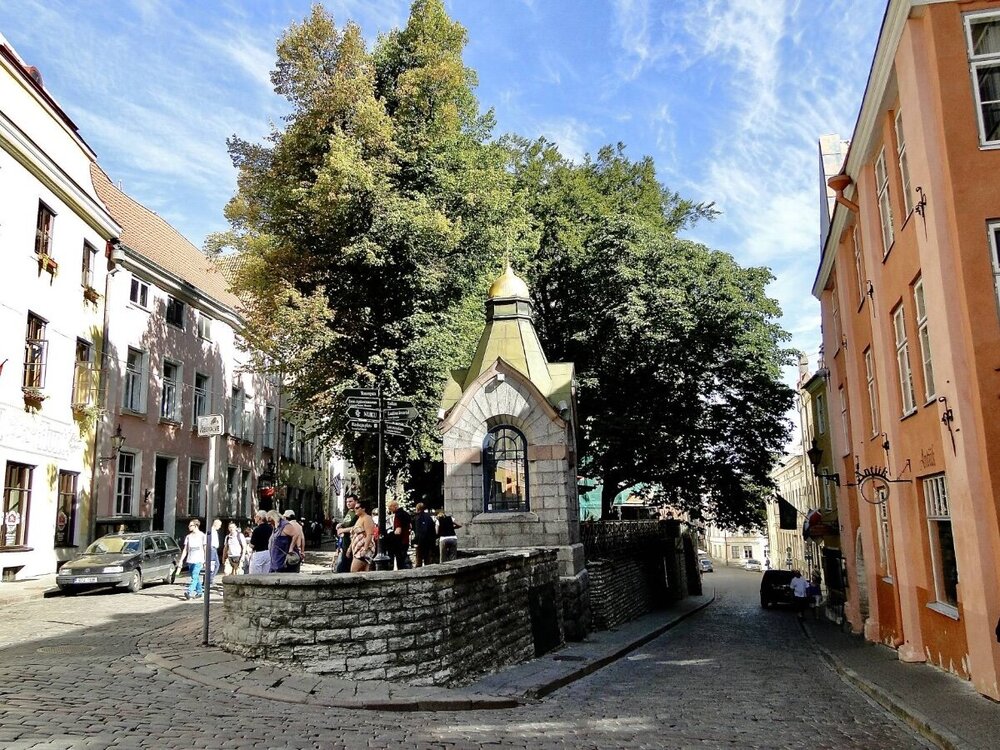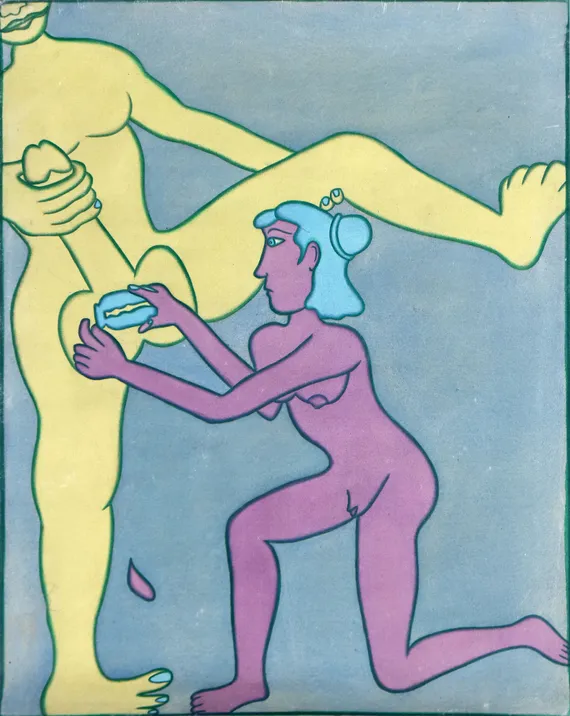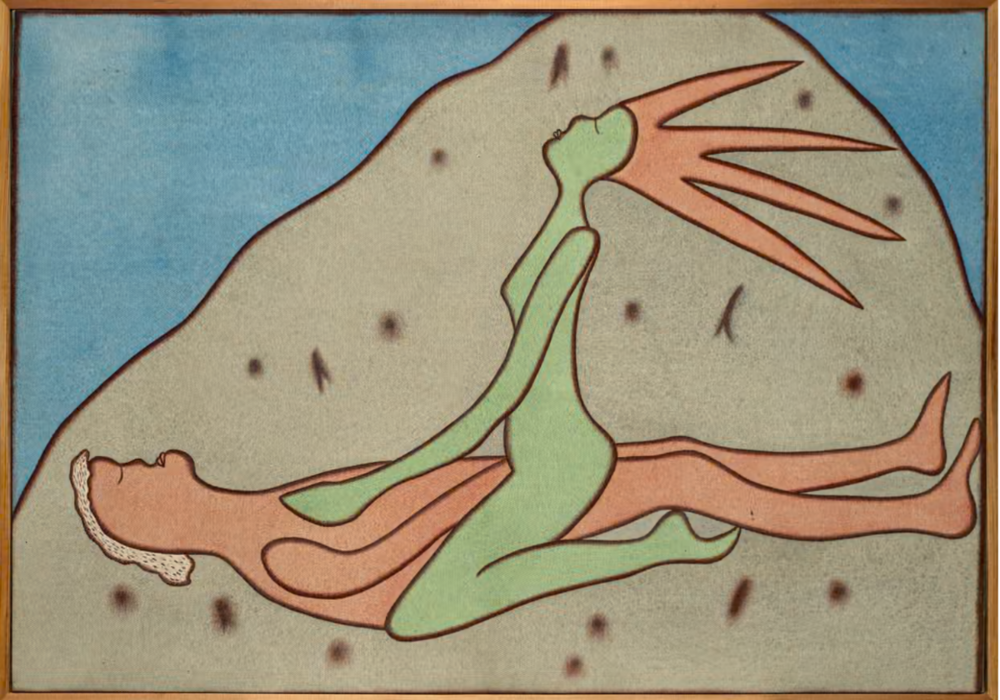
PeterRS
Members-
Posts
6,807 -
Joined
-
Last visited
-
Days Won
402
Content Type
Profiles
Forums
Events
Everything posted by PeterRS
-
Ah! So they could be looking for croissants!
-
What does that non-sequitor mean? As you will see on any map, there are several countries between the Baltic States and France!
-
Oscar Winner Dame Julie Andrews was 90 yesterday. Virtually born on the stage, she was taking part in British music hall entertainments before her teens. Encouraged by her step-father to take voice lessons, it was eventually realised that she possessed an extraordinary 4-octave vocal range. By the time she was 20 Broadway had beckoned and she became a star playing Eliza Doolittle in Lerner and Lowe's magnificent musical My Fair Lady. When it came time to make the movie, she was the obvious choice for Eliza - to all but the studio head Jack Warner. He believed the film needed a more obvious star and chose Audrey Hepburn instead, even though she could not sing and Eliza's singing is dubbed throughout the film. But Andrews got her own back. At that year's Golden Globe ceremony, she thanked Warner because it freed her up to take on the lead role in Mary Poppins the part for which she won an Oscar. Soon she would become a worldwide sensation in the movie of Rodgers & Hammerstein's The Sound of Music. Following that monster success, though, was less easy. She spent a decade working in television and in a few movies that were essentially flops. But in one she met the man who was to become her husband of 41 years, the director Blake Edwards, best known today perhaps for his association with comedian Peter Sellars in the Pink Panther movies, a particularly happy marriage that was to last till his death in 2010. And it was in a musical comedy directed by her husband that her career rebounded. In Victor/Victoria, she plays a clasically trained singer in 1930s Paris very much down on her luck. A chance meeting with a gay cabaret singer (marvellously played by the late Robert Preston) leads to a major new career as a man singing as a woman. When I first saw this on a Garuda flight from Bali to Hong Kong, I was on the floor collapsed in laughter. Whenever I show it now to young Thai friends, they love it. But it was also a show which all but killed her career. Edwards decided to make it into a stage musical which ran in New York for a respectable 734 performances. But during a four week vacation near the end of the run when Liza Minelli took the role, Andrews felt problems with her vocal chords and eventually pulled out of the show altogether. A small nodule was discovered on one of the chords and her doctor prescribed a long period of rest. Her husband was not satisfied and proposed surgery, a delicate operation that sadly turned out badly. Andrews vocal chords were effectively destroyed as far as singing was concerned. She basically never sang again. They sued the surgeon and won an award of US$20 million. But she turned to writing and since then has written no less than 36 books for children. She also continued acting in speaking parts, as in the sugary Princess Diaries, as well as many voice-overs as in the Shrek series. But surely it is for Maria, Mary Poppins and Victor/Victoria that we remember her most today. For her wonderful contribution to film and the stage, here's wishing Dame Julie belatedly the happiest of birthdays.
-
She may be 87 but clearly as on the ball as ever. The great actor Jane Fonda has relaunched the Committee for the First Amendment in the wake of Trump's censorship threats. She is following in the footsteps of her father actor Henry Fonda who launched the Committee in the 1940s in response to the House un-American Activities Committee led by the awful Senator Joseph McCarthy. This had accused many entertainment figures of being communist sympathisers, "derailing many careers and casting a chilling effect on Hollywood." His daughter Jane's relaunch has been supported by 550 entertainment figures, many household names. In a statement she said this - “The McCarthy Era ended when Americans from across the political spectrum finally came together and stood up for the principles in the Constitution against the forces of repression. Those forces have returned. And it is our turn to stand together in defense of our constitutional rights . . . Free speech and free expression are the inalienable rights of every American of all backgrounds and political beliefs – no matter how liberal or conservative you may be. The ability to criticize, question, protest, and even mock those in power is foundational to what America has always aspired to be.” In a letter encouraging her peers to join the initiative, Fonda pointed to her long history as a civil rights activist. “I’m 87 years old. I’ve seen war, repression, protest, and backlash. I’ve been celebrated, and I’ve been branded an enemy of the state. “But I can tell you this: this is the most frightening moment of my life,” https://www.theguardian.com/film/2025/oct/01/jane-fonda-committee-first-amendment-trump It is surely more than interesting that a counsel on one of McCarthy's hearings was the dreadful closet homosexual Roy Cohn, the man who went on to became Donald Trump's mentor and from whose playbook of dirty tricks Trump not only learned his "craft" but puts it into practice almost daily.
-
More on the drug bust. Britain's Daily Mail - never a newspaper with the most accurate reporting, to be fair - claims the arrested man, George Wilson, comes from an extremely wealthy family and his father is a multi-millionaire, thanks largely to involvement in the pop music business with artists like Iron Maiden, Elton John and Kenny Rodgers. The father's business is worth "hundreds of millions". Wilson himself went to a boarding school allegedly costing £70,000 a year. The family's home is "luxurious". Wilson is said to have been in Thailand for two weeks. He confirmed the pink bag was his but when asked what was inside, he answered, "I don't know." Contrary to the Khaosod English report, the Daily Mail states he was planning to export the drugs from Thailand and that this was an operation involving a much larger gang of drug smugglers. It is believed the drugs had been made in Myanmar. Penalty in Thailand for carrying this amount of this type of drug is death, always now converted to life in prison. My mind finds this whole affair extremely strange. This young man is clearly far from poor - indeed may be borderline rich. He did not stop in Bangkok for just 2 or 3 days like most drug mules. He had been here for 2 weeks in a soi where the hotels are certainly not cheap. Why would a 23-year old from an extremely wealthy family become involved in what he surely must have realised was some form of drug smuggling exercise merely for payment of 20,000 baht? Most mules are paid a minimum of several thousand US$$. It's all very curious! https://www.dailymail.co.uk/news/article-15152741/Boarding-school-Thai-drugs-Brit-police-70k.html
-
Yet another drug mule has been discovered and arrested in Bangkok. A 23-year old man from the UK was discovered to have 9.1kg of crystal meth wrapped up in foil bags to look like tea in his hotel room. According to Khaosod English, the man was staying at a hotel on Sukhumvit 11. The packages were already in his suitcase when police arrived. The authorities had acted on a tip off about a "narcotics handover in a hotel." Allegedly the man had been given the bag to look after by another British man whose name he only knew as "Snoopy". He was to hand the 'tea' over to customers on September 30 and had been paid 20,000 baht. Judging by the number of officers present in the hotel room, the police were well aware that a drug transfer was about to take place. Although it seems there was no intent by the young man to smuggle the drugs out of Thailand, he clearly is yet another innocent individual caught up in drug activity. Yet innocence is relative, and when you agree to carry a bag given to you by someone whose name you do not know but is nicknamed "Snoopy", alarm bells must surely have been ringing. When will these young, often poor people desperate to make a bit of cash realise that anyone caught with drugs in Thailand is more likely than not to end up looking at a lengthy jail term in the Bangkok 'Hilton'? I suspect he had never been to Thailand before and just assumed this was easy money. What a stupid man! https://www.khaosodenglish.com/news/2025/09/30/british-man-caught-with-9kg-of-crystal-meth-in-bangkoks-sukhumvit-hotel/
-
Because it gets Russia closer to the rest of western Europe - just as Hitler quickly marched through The Netherlands, Belgium and Luxembourg in 1940 because his real goal was France.
-
I'd love to. Sadly since the 2008 financial crisis, my funds or lack thereof have made a lot of the travel I'd like to do financially impossible. But in any case, I doubt if the weather conditions at for example the Taj Mahal would now result in the fantastic clarity in November 1989. Seeing dawn break with the below-the-horizon sun resulting in a succession of multi colours over that magnificent building was mind-blowing.
-
Do we ever think what depravities those we are dining with might be up to? Extremely unlikely, I reckon. Child porn is especially dreadful and nauseating and I imagine relatively easy to keep quiet about. Isn't so much of it about control and ensuring the children dare not reveal what has happened? Quite a few will even have been induced to believe it was all their own faults. That then remains in their minds for much of their lives with some resultant suicides. I'd never heard of this man till the thread opened earlier on gayguides - but then I hardly ever watch western porn. I hope I never hear about him again and wish he had received more than 19 years.
-
I actually live in Bangkok and my next trip will be the supermarket at Central Chidlom tomorrow! But I do get your meaning! Very much the glass half full view LOL
-
Thanks. I wish I had known some years ago! When i discovered the state of the photos, I decided just to throw them out. I still have most of the negatives but no idea of the state they are in. So I prefer just to rely on my memories.
-
I have been in several category 10 typhoons in Hong Kong and quite a few minor earthquakes in Tokyo and Taipei. The largest quake I ever experienced was the 6.9 quake near Santa Cruz just around 5:00 pm in 1989 that saw the collapse of part of the Bay Bridge. I was in the little town of Pacific Grove, the roads were all cracked and the power out till morning. But everything in that town other than the Hyatt where I was staying was very low rise and I do not recall much structural damage. Further north in San Francisco and the Bay area there was considerably more damage. I hate to think what that magnitude must have done in Cebu.
-
La la land again!
-
Although i used to visit Manila quite regularly when I first arrived in Asia, I was never there for one of the regular typhoons. Given that regularity I often feel sad for the Filipinos who have to endure such misery and damage in their wake. Now it's an earthquake which has devastated some of Cebu. Not only was it a big one at 6.9 on the Richter scale, it was relatively shallow meaning the destruction is worse, the more so since it struck after dark. The US Geological Service has recorded four aftershocks of more than 5. The shaking of the indoor sports hall near the end of the video is really scary.
-
Great series of photos - thank you. One question. When I was in Rio I also stayed in a hotel on Copacabana but I did not use the beach because I wondered what might happen to my simple clothes and even the hotel beach towel once I was in the water. I assume leaving them safely in a small heap would be rather stupid!
-
I think all three Baltic States are likely to be in Putin's sights. You can virtually walk into Estonia and Latvia from Russia. Estonia's capital Tallinn is a beautiful city. Rather than 'walk in' from St. Petersburg, I returned to Helsinki and then took the jetfoil from there. I doubt if these three states have forces that would stop a few Russian army units. So they are totally dependent on NATO. I visited Tallinn in 2013
-
I think those historians are wrong, if only because as @vinapu righly pointed out, the disastrous post-WWI reparations imposed by the victors on both those countries reduced their economies to worse than basket cases. When the people of Germany were in some cases reduced to using wheelbarrows of cash to purchase a loaf of bread, the conditions were ripe for a leader - any leader - to rise quickly to the top, the more so someone like Hitler who quickly spouted almost every reason in the book for the country being in such a mess. Too late the victorious WWI allies realised they had therefore been complicit in the rise of a monster like Hitler Trump, on the other hand, took over a country that was doing relatively well for most of its people - although far from all. As has already been written many times on various forums on this Board, there may be some comparison with Germany in the way one man who suffered a wretched childhood and was then schooled by one of the master gutter-fuelled monsters in the USA in the person or Roy Cohn was persuaded that he could do anything as long as he shouted loundly enough for long enough, used the law to his advantage, continuously threatened law suits left, right and centre, and changed his politics and his thinking with some regularity, who then became a national figure with a TV show that polished a fake persona - such a person could not just take on the rotten USA political system, he could actually win. The comparison surely is that Hitler rose to the top because he did basically the same given the differences between those two generations. With Trump I see some parallel with the lyrics to the great song from Berthold Brecht and Kurt Weill's "Ballad of Mack the Knife" from The Three Penny Opera. They wrote the song almost at the last minute to compare the sinister MacHeath to a shark and reveal his crimes that included arson, robbery, rape and murder. Oh the shark, babe, has such teeth, dear And it shows them pearly white Just a jackknife has old MacHeath, babe And he keeps it out of sight. You know when that shark bites with his teeth, babe Scarlet billows start to spread Fancy gloves, though, wears old MacHeath, babe So there's never, never a trace of red. Many have sung the song, but the original Bobby Darin version is still one of the best
-
I agree with most of your post, although I certainly don't believe the disappearance of the "good ol' days" is a subject necessarily for lamentation. For those like me who enjoyed so many years in Bangkok - indeed revelled in them - (never really liked Pattaya as regular readers will be aware) they are a source of much continued enjoyment of wonderful and often amazing memories. As @mauRICE rightly says, though, time never stands still and what we once loved is almost bound to change over time. I used to love living and working in London as soon as I left university. Absolutely adored the city and took advantage of what it offered in terms of entertainment, opera, concerts and wonderful theatre as much as my meagre salary could afford, always in the cheapest seats. Coming from a small city, it all opened my eyes. Returning almost every year over more than four decades, most recently in March, not only have I witnessed the city changing greatly (some for the worse!) my own life experience has changed massively and I generally would not wish to return to any of the past, including those heady days in London or even Bangkok. I sometimes wish those today could have experienced the Bangkok days of old but . . . Although I have not been a visitocr to most of the sex scene in Bangkok for some years, I fully recognize and acept that is definitely a result of my personal development. It is always unrealistic not to allow for change.
-
As I have learned more about Colombia it is one country in South America that I wish I had included in my itinerary for my long vacation 15 years ago. For me the photos I see of Colombian boys are a greater turn on than those in Brazil, Mexico and other countries.
-
In your experience, are bisexuals challenged when it comes to commitment?
PeterRS replied to unicorn's topic in The Beer Bar
Ha! I thought you are not a church-goer. -
Any experience bring guests back to Ibis Styles Silom?
PeterRS replied to paulfort's topic in Gay Thailand
I never stayed at the hotel, only took my guys to the rooms off the garage on the ground floor. Easy and quick. But certainly no ceiling mirrors that i recall. In fact I only recall one short time hotel with ceiling mirros but that was definitely somewhere off Sukhumvit - and a good 30 years or more ago. I sometimes miss the Japanese short time hotels. many with circular beds and mirrors both on the ceilings and the walls. They all seemed set up to give you a fun and exciting time with your partner. -
In your experience, are bisexuals challenged when it comes to commitment?
PeterRS replied to unicorn's topic in The Beer Bar
I am sure he has pockets in his pants and you can have a bit of fun as you try to find something in one. -
When I was visiting Bali regularly in the early 1980s, I based myself in Ubud, a town where art had flourished for many deacdes. There were artists working in other towns but it was Ubud which inspired a number of western artists to visit and make their homes there in the 1920s and 30s resulting in the development of a more naif form of painting. The main one we know of today is almost certainly the German painter and musician, Walter Spies. After a spell living iin Java, he moved to Bali in 1927 and spent most of the rest of his life there. As his art grew in popularity, he formed a co-operative of young Balinese artists who continued his style after he was forced to leave the country and his ship was sunk by a Japanese torpedo in 1942. Spies was openly gay. In Bali in those days although homosexuality was illegal, it openly flourished in and around Ubud and other parts of the island. It was only towards the end of the 1930s that the Dutch colonial masters decided to more strongly enforce the law and Spies was arrested resulting in his deportation. Using daily Balinese life as their subject, the works of the cooperative formed by Spies were popular for many decades. In Hong Kong I had five Ubud paintings on walls. Here in Bangkok, just one. What I had not realised until today after reading an article in the Guardian about an art exhibition in England is that art in Bali had major developments as the century was coming to an end. This particulr exhibition focuses on paintings by the female artist known as Murni (I Gusti Ayu Kadek Murniasih) who had died of ovarian cancer at the horribly young age of 39 in 2006. Her work retains near absolute simplicity as she paints with an abandon of form. Her later works are amost entirely devoted to sex. Through sex she shrugs off the constaints of Balinese daily life and society. As the article states - "Murni’s later work stands apart though. The paintings are now infinitely more brazen, a total embrace of desire and sexuality. A pig in a bra puts on lipstick. High heels – sexily feminine and absolutely lethal – kick and stomp. Vaginas are worshipped by kneeling figures or penetrated by tentacles; breasts are bound by wristwatches; couples hump and writhe; everywhere you look there are cocks throbbing and piercing and erupting. They pop out of cups, wrap around women’s bodies, nudge at orifices. It’s all desire, totally unbound, totally free." There are none of the norms of Balinese society here. She wanted freedom in her life and as an artist. Her works are now to be found in a number of pretigious galleries in New York, Chicago, Sydney, Singapore and elsewhere. Two of her works - Images: Gajah Gallery & The Estate of I Gusti Ayu Kadek Murniasih https://www.theguardian.com/artanddesign/2025/sep/29/i-gusti-ayu-kadek-murniasih-review-a-vivid-testament-to-a-life-lived-hornily
-
As a youngster my golf mad mother did her best to teach my brother and me how to play the game. We did for a while, but neither had much interest. Nowadays my only interest in televised golf is the biennial Ryder Cup which pitches 12 of the best of European golfers against 12 American counterparts. This is a three day event consisting of two days of foursomes and the last when all 12 are singly matched against another. Played every two years, first in one continent and then the other, inevitably it arouses greater fan participation as they cheer on their own teams. Generally it is an exciting and fun event, assuming one team is not losing dramatically, and it is the home team that often wins. Last week-end it was held at a course in New York State. The Europeans had won quite handsomely two years ago and most expected the US team to triumph this year. Whereas the Cup is about players and their golf, this year the headline writers had a field day about the bear pit that the huge galleries of spectators had become. For reasons totally beyond most people, the US Professional Golf Association had hired a vulgar comedian to introduce each of the matches. For the second match on Friday, she introduced the world #2 golfer, Irishman Rory McIlroy, by saying into her loudhailer "Fuck you, Rory." This was a total disgrace and the lady was rightly replaced later in the tournament. But it was an incentive to the crowds. While many were respectful of the rules of golf - rules which basically state that spectators are silent when a player is lining up a shot and then hitting it - that "Fuck you" was the start of a whole tirade of appalling behaviour of which "fuck you" was almost a pleasantry. European players, McIlroy especially - despite the fact that until recently he lived in the USA and is hugely popular on the US golf tour - were routinely targetted with horrifically disgraceful and disgusting comments about their wives, their being gay (totally untrue), their weight, with McIlroy's wife being hit with a beer can etc, and most happening just when the player was about to hit a ball. Made worse was the American PGA's agreement that one company selling alcohol could put little squawking plastic ducks in the drink. At times these could almost be heard over the abuse. All the media I have seen and read today mentions the apalling behaviour of this group of rowdies who probably had never been to a golf game in their lives before. You do not see this hideous behaviour at the Masters in Augusta or at the other two PGA major tournments. Everyone, the USPGA included, were perfectly well aware that holding the tournament at this particulr venue would lead to aggressive verbal abuse. But they did nothing to stop it apart from belatedly bringing in some state troopers to protect the European players. Hoologans being ejected was rare. Then again, as one meda source noted, this was a microcosm of what the USA has now become under Trump - who jetted in on the first day leading to many of those who had paid an unbelievable $175 for their day's ticket being late arriving. He who shouts loudest not only gets heard but gets his message across. It has been tradition since the Ryder Cup started that players do not get paid. Profits go to a variety of golfing charities. Two years ago on European soil, the American Patrick Cantlay mounted a silent campaign claiming players should get paid. The USPGA caved in. All their 12 this year were paid $500,000, of which they had to give 60% to a charity of their choice. Ironically, Cantlay with a net worth of over US$30 million won only one of his four matches. The Europeans who continued to play purely for pride surprisingly retained the Cup with a 15 - 13 lead. So the USPGA had forked out $6 million on effectively a bunch of losers, no matter that some did redeem themselves on the last day. Even in Donald Trump's America, money does not always win! When the Cup is next played for in Ireland in two years time, so will respect for the game's traditions return.
-
In your experience, are bisexuals challenged when it comes to commitment?
PeterRS replied to unicorn's topic in The Beer Bar
And I think with that we are both basically on the same page! By the way, I do love those shirts, even with a rainbow Mickey!

